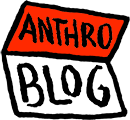Date:
February 7, 2024
6:00 pm
← Go back
Lecture Series: Deborah Thomas
What does the body know? What can bodies tell us about ontologies that cannot be recuperated or resolved into Western ways of knowing? What can they tell us about the forms of collective world-building that exist outside of but in relation to the juridical structures of sovereignty that govern modern Western political and social life? And further, what might sovereignty look like, and feel like, if we approached it not primarily in terms of its foundational violences (conquest, imperialism, settler colonialism, capitalist extraction, and so on) but in relation to the forms of self-determination and autonomy people have attempted to create in the realm of everyday life?
This paper will explore these questions in order to in order to claim that we are heir not only to colonial logics, but also to the means to refuse or retool them, and that both of these inheritances are inscribed in and on the body. Thinking through and with the space of Kumina in Jamaica, and particularly through a kumina festival I have co-organized for the past five years, I reflect on the ways community-based spaces of care, creativity, and spirituality can open portals to thinking beyond linearity, creating channels for accountability, and investigating contemporary mobilizations of personhood and political life on post-but-still-colonial terrain. I argue that being attuned to the body’s inheritances can provide inroads into genealogies of sovereignty alternative to those that are tethered to the foundational frames of property, accumulation, and dispossession.

Location:
6 East 16th Street, 9th Floor, Anthropology Lounge
